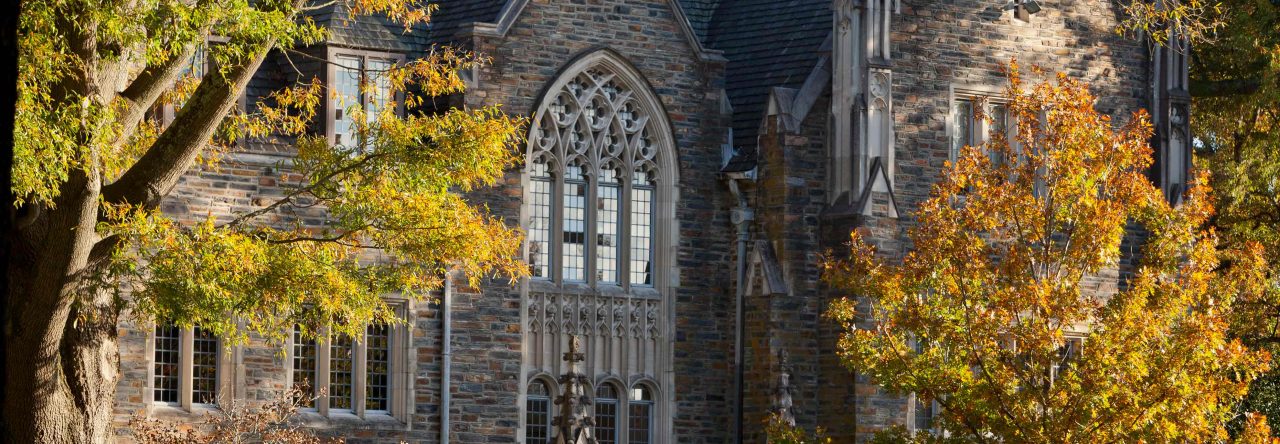To the Duke Community,
This year’s Juneteenth holiday marks the 159th anniversary of the end of slavery throughout the United States. As we observe this holiday and celebrate Black excellence, I also want to take the opportunity to consider Duke’s ongoing work to address the effects of racism and inequity that have continued to shape the experiences of too many people in America, including here at Duke.
In this moment when efforts to advance diversity, equity and inclusion nationally are being questioned—and in some cases curtailed—let me be clear in reaffirming Duke University’s unwavering commitment to attaining true excellence in our core missions of education, research and clinical service by advancing racial and social equity and living up to our values by being a welcoming and inclusive community that supports all people in reaching their full potential.
Though we still have significant work to do in meeting challenges facing the Black and other underrepresented members of our community, we have made important strides. I am very grateful to so many committed colleagues across campus, including members of the Racial Equity Advisory Council (REAC), the President’s Council on Black Affairs (PCOBA), Black Student Alliance (BSA), Duke Black Alumni (DBA) and the many other individuals and groups who have joined together to help Duke as we strive to become the diverse and inclusive campus community we need to be, and to ensure a strong sense of community, belonging, and commitment to shared success.
As part of our work to build our ever more diverse and talented community, we are committed to recruiting and retaining outstanding Black faculty, staff, and students in every school, department and program. I’m pleased to report our efforts are beginning to bear fruit:
- Over the past five years, the number of Black faculty on campus has increased by 47%.
- This fall we expect to welcome more than 220 incoming undergraduate students who are Black, representing 12.5% of the Class of 2028 and an increase over last year.
- With support from The Duke Endowment, we recently introduced new support for graduate and professional students who earned undergraduate degrees from Historically Black Colleges and Universities (HBCUs) and other minority-serving institutions.
We are investing in building a campus community where everyone can thrive, using data to identify gaps in policies and practices and to improve the day-to-day experiences of staff, faculty and students in every unit across the campus.
- The Mary Lou Williams Center for Black Culture, affectionately known as “The Lou,” reopened in newly renovated space and celebrated its 40th anniversary. The Lou will now partner with the Office of Undergraduate Scholars and Fellows to offer support for research and internships, community building and scholarly programming that honors Black excellence through the new Reginaldo Howard Leadership Program.
- Faculty seed grants support projects to cultivate collaborative networks and foster community. A dozen new grants awarded this spring build on impactful projects including the Black Think Tank and the Writing and ReseArch Productivity Group for Underrepresented Faculty (WRAP).
- Duke Black Alumni and other affinity groups are playing an important role in the alumni experience by building community and supporting belonging and equity among our more than 200,000 alumni around the globe.
- The Campus Culture Survey, first launched in 2021, helps us understand the lived experiences of members of the Duke community. Hundreds of campus leaders come together each January for a full-day work session to review survey findings and share lessons learned and best practices.
- Our second Campus Culture Survey, completed this spring, shows improvements in some areas, but also a persistent gap between the experiences of communities of color and other members of the Duke community. A full analysis of the survey data is underway and will help identify areas where people’s experiences at Duke are not living up to our ideals and where new supports will be of most value.
- The Duke Annual Report on Racial Equity (DARRE) tracks progress towards racial equity across the university. A dashboard highlighting unit-level data will be deployed to 40 university units this fall as part of a three-year university-wide rollout.
We are also advancing equity and inclusion through teaching, research, and patient care.
- Since 2021, with support from The Duke Endowment, the university has funded 46 faculty research projects working to understand and address racism and its enduring impact in our state and region.
- The Bass Connections Race & Society theme supports interdisciplinary projects exploring the ways race intersects with society and the lived experience.
- Duke University Health System has established a DEIB strategic plan to ensure equity and inclusion in talent acquisition, talent development/education, supplier diversity, data analysis and support, and strategic communications. And the Duke Health Pledge Against Racism, Bias, and Hate serves as the foundation of a culture that stands up against racism and hate in all forms to create a more just and equitable experience for patients and employees.
Although I view these as significant gains, I also acknowledge that we have a long way to go as a campus, university, and society.
As we together mark Juneteenth, I give thanks for the many ways Duke community members support and sustain our commitment to advancing racial and social equity. In our sadly divisive world, surely we can come together around a shared hope that all members of our society, regardless of race, creed, or background, have the opportunity to thrive and enjoy lives of purpose and distinction. To this end, our work will continue, day in and day out, to live up to our shared values of respect, trust, inclusion, discovery, and excellence.
Sincerely,
Vincent E. Price
President
